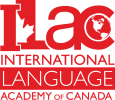
Study in Canada Incredible opportunity to gain a world-class education

Studying in Canada is an incredible opportunity to gain a world-class education, immerse yourself in a diverse and welcoming culture, and launch your career with the best possible start. With top-ranked universities and colleges, affordable tuition, and a safe and welcoming environment, Canada is the perfect destination for international students.
Canadian institutions offer a range of programs in various fields, from business and engineering to the arts and sciences, ensuring that there is something for everyone. The high-quality education provided by Canadian institutions is recognized worldwide, making it an excellent choice for those seeking to enhance their career prospects and broaden their horizons.
Moreover, Canada’s multicultural society offers international students an inclusive and welcoming environment. This diversity is celebrated and embraced throughout Canadian institutions, providing a unique learning experience that fosters global understanding and empathy.
Canada also offers numerous work opportunities for international students, enabling them to gain valuable work experience and supplement their income while studying. And with post-study work permits available for graduates, studying in Canada can provide a pathway to permanent residency and a successful career.
Why do I need to study in Canada?
High-Quality Education
Canada has a reputation for offering high-quality education, with many of its universities ranking among the best in the world.
Multicultural Environment
Canada is a multicultural country that welcomes students from all over the world. This provides a unique opportunity to learn about different cultures and make international connections.
Affordable Education
Compared to other countries such as the United States and the United Kingdom, the cost of education in Canada is relatively affordable.
Work Opportunities
International students in Canada are eligible to work part-time while studying and full-time during scheduled breaks. After graduation, they may also be eligible for a post-graduation work permit, which allows them to gain work experience in Canada.
Quality of Life
Canada is known for its high standard of living, with access to quality healthcare, low crime rates, and a welcoming and inclusive society.
Natural Beauty
Canada is home to stunning landscapes, including mountains, forests, and lakes. This provides ample opportunity to explore and appreciate the country’s natural beauty.
Path to Permanent Residency
Canada has a welcoming immigration policy and provides a clear pathway to permanent residency for international students who wish to stay and work in the country after graduation.
Who can study in Canada as an international student?
International students from all over the world can study in Canada. There are no restrictions on nationality or country of origin. However, to study in Canada as an international student, you must meet certain requirements, which may vary depending on the province or territory you wish to study in.
What are the requirements to get a study permit?
To obtain a study permit to study in Canada, international students must meet the following requirements:
- Acceptance to a Designated Learning Institution (DLI): Applicants must first be accepted into a Canadian DLI. DLIs are schools that are authorized by a provincial or territorial government to host international students.
- Proof of Financial Support: Students must prove they have sufficient funds to cover their tuition fees and living expenses while in Canada. The amount of money required will depend on the length of stay and the province or territory of study.
- Language Proficiency: Students must demonstrate proficiency in either English or French, depending on the language of instruction at the institution.
- Medical Examination: In some cases, students may be required to undergo a medical examination to prove they are in good health.
- Security Clearance: Students may be required to provide a police clearance certificate to show they do not have a criminal record.
- Application fee: There is a fee for submitting a study permit application, which must be paid at the time of application.
It’s important to note that meeting these requirements does not guarantee a study permit. Immigration officers will review each application and consider factors such as the applicant’s ties to their home country, the purpose of the study, and the potential for the applicant to stay in Canada beyond the expiration of their permit.
I don’t have an English Certificate; can I still get accepted to study in Canada?
In general, international students are required to demonstrate English proficiency before being admitted to Canadian universities or colleges. This is usually done through standardized language proficiency tests such as IELTS, TOEFL, or CAEL. However, some universities and colleges may also accept alternative forms of English proficiency such as completing an English language program, previous academic study in English, or other language tests such as the Cambridge English exams.
How much does it cost to study in Canada as an international student?
The cost of studying in Canada as an international student varies depending on several factors such as the program of study, institution, location, and the student’s living expenses. Here are some estimated costs for international students:
Tuition Fees: Tuition fees for international students in Canada vary depending on the institution and program of study. On average, undergraduate programs cost between CAD 20,000 and CAD 35,000 per year, while graduate programs can cost between CAD 22,000 and CAD 40,000 per year. Professional programs such as Medicine, Dentistry, and Law can cost significantly more.
Accommodation: The cost of accommodation for international students in Canada can vary greatly depending on the location and type of housing. On-campus housing can cost between CAD 8,000 and CAD 16,000 per year, while off-campus housing can cost between CAD 10,000 and CAD 25,000 per year.
Food and other living expenses: International students must also budget for food and other living expenses such as transportation, health insurance, and textbooks. These expenses can vary widely depending on the individual student’s lifestyle and location but are typically estimated to be around CAD 15,000 per year.
Overall, the estimated cost of studying in Canada as an international student can range from CAD 30,000 to CAD 60,000 per year, depending on the factors mentioned above. It’s important to research and budget carefully to ensure that you can afford the cost of studying in Canada.
Can I work as an international student and pay my expenses in Canada?
Yes, international students in Canada are allowed to work part-time while studying to help cover their living expenses. As an international student, you can work up to 20 hours per week during the academic term and full-time during scheduled breaks such as winter and summer holidays.
Various job opportunities are available for international students, including on-campus jobs, off-campus jobs, and co-op/internship programs. Some common part-time jobs for students include working in retail, food service, or as a tutor.
While working part-time can help you cover your living expenses, it’s unlikely that you will be able to cover the full cost of your tuition and other expenses with just part-time work. Therefore, it’s important to budget carefully and consider other funding sources such as scholarships, bursaries, and financial aid.
Can my study permit request be refused?
Yes, it is possible for a study permit application to be refused. Even if you meet all the requirements and have submitted a complete application, there is still no guarantee that your request for a study permit will be approved.
Immigration officers will carefully review each application and consider various factors before making a decision. Some common reasons for study permit refusals include:
- Insufficient financial resources: If the applicant cannot prove that they have enough funds to cover their tuition fees and living expenses in Canada, their application may be refused.
- Lack of language proficiency: If the applicant can demonstrate adequate proficiency in English or French, their application may be accepted.
- Failure to provide required documentation: If the applicant fails to provide all the necessary documents or information, their application may be refused.
- Inability to satisfy immigration officers of intention to return home: If the applicant cannot satisfy the immigration officers that they intend to leave Canada after the completion of their studies, their application may be refused.
- Security concerns: If the applicant has a criminal record or poses a security risk, their application may be refused.
If your study permit application is refused, you may be able to appeal the decision or reapply with additional supporting documentation or information. It’s important to carefully review the reasons for the refusal and seek guidance from a qualified immigration professional before taking any further action.
Can my spouse accompany me to Canada?
Yes, the spouse of an international student in Canada may be eligible to work in Canada. The spouse may apply for an open work permit, which allows them to work for any Canadian employer without the need for a job offer or Labour Market Impact Assessment (LMIA). To be eligible for an open work permit, the spouse must be accompanying the international student in Canada on a valid study permit. Additionally, the student must be enrolled in a full-time program at a designated learning institution and must have a valid study permit.
Can my children attend school while I’m studying in Canada?
Yes, if you are an international student studying in Canada, your children may be eligible to attend school while you are studying. Canada offers publicly funded elementary and secondary education to all children who are living in Canada, regardless of their immigration status.
To enroll your children in school, you will need to provide proof of their age and immunization records. In some cases, schools may also require proof of guardianship or custody.
It’s important to note that education is a provincial responsibility in Canada, so specific rules and regulations may vary depending on the province or territory where you will be studying. Additionally, you may need to pay fees or provide other documentation, such as proof of health insurance, depending on the school and the province or territory.
It’s recommended to contact the school board or school where you plan to enroll your children to obtain detailed information on the requirements and procedures for enrollment.
Can I become a permanent resident in Canada after I finish my studies?
Yes, applying for permanent residence in Canada after completing your studies is possible. The Canadian government offers several immigration programs that allow international students to stay and work in Canada after graduation, with the potential to become permanent residents eventually.
One of the most popular options for international students is the Canadian Experience Class (CEC) program. This program is designed for individuals who have gained at least one year of skilled work experience in Canada, which can be obtained through post-graduation work permits.
Other options for international students include the Provincial Nominee Program (PNP), which allows provinces and territories to nominate individuals with skills and experience to meet local labor market needs, and the Federal Skilled Worker Program (FSWP), which is designed for skilled workers with work experience outside of Canada.
It’s important to note that the process for obtaining permanent residence can be competitive and may require meeting certain eligibility criteria, such as language proficiency and education level. Therefore, it’s important to plan ahead and consider consulting with a qualified immigration professional to guide you on the best pathway.
I can submit my study permit application by myself; why do I need your services?
As an immigration firm with over 17 years of experience and three in-house ICCRC members, we have the knowledge, experience, and expertise to navigate the complex Canadian immigration system and ensure that our clients’ applications are complete, accurate, and comply with all relevant laws and regulations.
By submitting our clients’ applications, we are able to review and assess their qualifications and identify any potential issues or deficiencies that could result in a visa refusal. This allows us to address these issues and work with our clients to strengthen their applications, increasing their chances of approval.
In addition, we have access to the latest information and updates on Canadian immigration policies and procedures. This allows us to provide our clients with the most up-to-date and accurate information, helping them make informed decisions and increase their chances of success.
Overall, working with ICCRC members can significantly increase clients’ chances of visa approval by ensuring their applications are prepared and submitted correctly and receiving professional and ethical representation throughout the process.
Some Important
Terms to Remember
DLI
DLI stands for “Designated Learning Institution”. In Canada, a DLI is a school or institution that has been approved by the provincial or territorial government to host international students. International students who wish to study in Canada must enroll in a DLI in order to be eligible to apply for a study permit. To obtain a study permit, applicants must provide proof of acceptance to a DLI. DLIs may include universities, colleges, vocational schools, language schools, and other educational institutions. Each DLI has a unique designation number that is required when applying for a study permit. It’s important for international students to ensure that they are enrolling in a DLI that is approved by the Canadian government, as studying at a non-designated institution may affect their eligibility for a study permit and other immigration programs in Canada.
Biometrics
Biometrics refers to the collection of unique physical characteristics of an individual, such as fingerprints, facial features, and iris patterns, which can be used to verify their identity. Canada requires biometric data from most foreign nationals who apply for a visitor visa, study or work permit, or permanent residency. This data is collected at designated Visa Application Centers (VACs) and consists of a digital photograph and fingerprints. Biometrics are used to help Canada verify applicants’ identity and facilitate their processing of visa or permit applications. Biometric information is kept confidential and secure by the Canadian government and is not shared with other countries or organizations, except in certain circumstances such as national security concerns or law enforcement purposes.
Student Visa
A student visa is a document issued by a country’s embassy or consulate that allows a person to enter the country for the purpose of studying (the visa will be placed on the student’s passport). However, international students need to obtain a study permit in order to be allowed to study in Canada.
Study Permit
A study permit is a document that allows international students to study at a designated learning institution (DLI) in Canada for the duration of their program. It is issued by Immigration, Refugees and Citizenship Canada (IRCC).
VAC
VAC stands for Visa Application Centre. It is a third-party service provider that works with certain countries’ embassies or consulates to receive and process visa applications. VACs are authorized by the government of Canada to provide a variety of services related to the visa application process, including accepting applications, collecting fees, and returning passports and other documents. VACs are located in various countries around the world and offer convenient services such as online application tracking, appointment scheduling, and biometric data collection.
Our Partners in Canada






